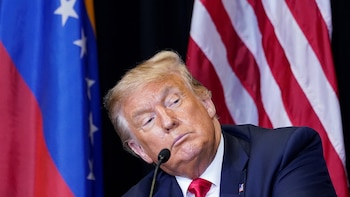
by Michael Pirrie
Something profound and unexpected is happening in Australia, 20years after it hosted the iconic 2000 Olympic Games.
The success of the Sydney Games reinforced images of Australia as the ‘Lucky Country’ -- vibrant economy, vast mineral deposits, sophisticated urban infrastructure, and an obsessive love of sport.
Battered by heatwave, drought and fire, Australia hasn’t felt much like a lucky country in recent weeks.
But the sporting world has never forgotten Sydney’s party atmosphere and spirit of friendship, and now it’s returning the love to a nation in urgent need.
SPORT SUPPORTS A DEVASTATED NATION
The international tennis migration to Australia for the new Grand Slam season proved more than a distraction – it provided a sense of stability and sanity to a country in fear for its future.
The tennis commentary, cheering crowds, post match interviews, and umpire rulings helped to fill the great void of stunned silence that covered the continent.
The superstars of world tennis got things started, but football soon followed.
In May, English Premier League Chelsea club legend, Didier Drogba, former Manchester United’s Park Ji-Sung and Juventus former striker, David Trezeguet, will join a galaxy of other stars in the Football for Fires fundraiser.
Organisers expect a crowd of around 80,000 in Sydney and to raise $AU1 million.
"The #FootballForFires match will harness the world game and its star players to draw attention to the Australian bushfires crisis and the crucial rebuilding of communities that will be required long after the fires have eventually burnt out," according to agent event organiser, Lou
Sticca.
"The images of these fires and the devastation they have caused to families, properties and our wildlife have touched so many people around the world and the international football family wants to help Australia," he said.
THIS TIME IT'S PERSONAL
For many of the elite tennis players who regard Australia as a second home, the disaster was personal.
These include Novak Djokovic, the current new number one ranked player in the world and eight times winner of the Australian Open, including this year’s title.
"A tragedy for Australia," is how Djokovic described his personal feelings.
"It’s important for people like me who have a big platform to raise awareness," said US global tennis superstar, Serena Williams, who knows some of the victims. She donated $43,000 of prize money from her singles title victory in New Zealand prior to the Australian Open.
SPORTS STARS RALLY FOR A SPORTING NATION
The players shared Australia’s grief, temporarily abandoning practice sessions and preparations to participate in the "Rally For Relief" tennis fundraising exhibition.
Featuring four Australian Open title winners -- Roger Federer, Rafael Nadal, Novak Djokovic, and Serena Williams -- the unique event helped raise more than $AU6 million for bushfire victims.
Other players donated money for each ace served, or volunteered prize money. Seventh-seeded German Alexander Zverev donated $AU50,000 to the fire recovery effort after initially promising the entire purse if he won.
But small gestures meant almost as much.
Rafael Nadal, the top-ranked men’s player for the tournament, shared a high five salute and jig with a local volunteer firefighter who attended the Open as part of a tribute to those who battled the flames.
A SPORTING PERSPECTIVE
Rarely has a sporting event been so relevant to the communities beyond its competition zone.
The bushfire disaster was integrated into the production and roll out of the tennis event itself. Courtside commentary, player interviews, break out features and other broadcast and event elements contained references to the fires.
Information was also provided through the Australian Open about how help could be provided for victims of fires so intense they left behind only ghost communities.
BARTY’S PARTY
The Open took the fighting spirit of Australia to the world, with the message "Australia is open" (for business) stamped on the court.
Fans attended in record numbers, as a sense of routine and familiarity returned.
Then there was Ashleigh Barty, whose climb to the number one ranking in time for her home Grand Slam could have formed the storyline of a movie.
The young and proudly indigenous tennis champion progressed further into the Open than any Australian female player in decades; fans re-named the event "Barty’s Party".
While Barty didn’t make it to the winner’s podium, she won the admiration of a nation, even inspiring it with a victory on Australia Day, the nation’s birthday.
Just like in the movies.
Barty’s choice as the new Young Australian of Year was also significant, coming at a time when the nation’s profile and performances in world sport have been declining since the golden Sydney 2000 Olympic era.
AUSTRALIA’S NEW OLYMPIC DREAM
Sport has helped overcome the tyranny of Australia’s distance from most of the rest of the world.
In the process, it has helped to grow the Olympic Movement. Australia has staged two highly successful Olympic Games – Melbourne 1956 and Sydney 2000; developed Olympic sport such as tennis, and hosted numerous world championships.
Twenty years after the Sydney Olympic Games highlighted Australia’s passion for sport and the benefits from Games investment, the Australian Open demonstrated what sport can do for a nation in dramatically different circumstances.
Sport’s role in helping to support Australia through the early phase of the bushfires crisis highlights the enormous potential of the Olympic Games to unify and sustain communities in the uncertain times.
The location of the Olympic Games in Brisbane, Queensland – coincidentally home state of Ash Barty, Australia’s new sports hero -- adds meaning and credibility.
The case for the Brisbane Olympic Games is further enhanced under the supervision of Australia’s senior IOC member, John Coates. The mastermind of Sydney 2000 is overseeing final preparations for the Tokyo 2020 Games, which are being used as a catalyst to help rebuild Japan after the devastating 2011 tsunami.
This should not be forgotten as Australia’s central government grapples with the enormous economic fallout from the fires and burnt out communities, and looks for new, long term projects to rebuild, unite and push the nation forward in the aftermath.
Michael Pirrie is an international communications strategy advisor and commentator who has worked and advised on several major international projects. Michael led the global media campaign for the London 2012 Olympic Games, and was executive advisor to Seb Coe, chairman of the London Olympic Games.
For general comments or questions,click here.
Your best source of news about the Olympics is AroundTheRings.com, for subscribers only.
Últimas Noticias
Sinner-Alcaraz, the duel that came to succeed the three phenomenons
Table tennis: Brazil’s Bruna Costa Alexandre will be Olympic and Paralympic in Paris 2024

Rugby 7s: the best player of 2023 would only play the medal match in Paris

Rhonex Kipruto, owner of the world record for the 10000 meters on the road, was suspended for six years

Katie Ledecky spoke about doping Chinese swimmers: “It’s difficult to go to Paris knowing that we’re going to compete with some of these athletes”




